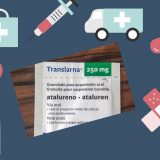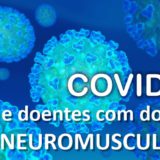Densitometria óssea em pacientes com distrofia muscular de Duchenne e Becker: acompanhamento de 4 anos
Suécia – pacientes com distrofia muscular de Duchenne e Becker podem apresentar osteoporose, mesmo sem o uso de corticóides. Neste estudo de seguimento da densitometria óssea por 4 anos os pesquisadores encontraram densidade óssea maior nos pacientes com Becker e uma progressiva redução nos pacientes com Duchenne, demonstrando uma correlação entre força muscular e osteoporese e a necessidade de prolongar a deambulação em pacientes com Duchenne.
O resumo em inglês pode ser lido abaixo:
(Acta Paediatrica, 2012, 101(4): 424-32) Bone mass development in patients with Duchenne and Becker muscular dystrophies: a 4-year clinical follow-up
Ann-Charlott Söderpalm (ann-charlott.soderpalm@vgregion.se), Per Magnusson,, Anne-Christine Åhlander, Jón Karlsson, Anna-Karin Kroksmark,Már Tulinius, Diana Swolin-Eide – Sweden
Aim: To investigate the longitudinal development of bone mass in patients with Duchenne and Becker muscular dystrophies and to study the impact of muscle strength and motor function on bone mass in these patients. Methods: Eighteen patients with Duchenne muscular dystrophy (2.3–19.7 years at baseline) and six patients with the milder Becker muscular dystrophy (10.8–18.9 years at baseline) were followed during a 4-year period with respect to areal bone mineral density (BMD), motor function and muscle strength.
Results: Greater bone mineral accretion was observed in the Becker patient group compared with the age-related Duchenne group above 10 years of age, and the older patients with Duchenne experienced decreased femoral neck BMD during the study period. In the study group, significant correlations were found between BMD in the lower extremities and muscle function parameters.
Conclusions: The differences in BMD between patients with Duchenne and Becker as well as between different bone measurement sites demonstrated in the present study point out the importance of preserving muscle strength and motor function in patients with muscular dystrophy. Moreover; it highlights the value of performing region-specific analysis of the bone quality in these patients.



